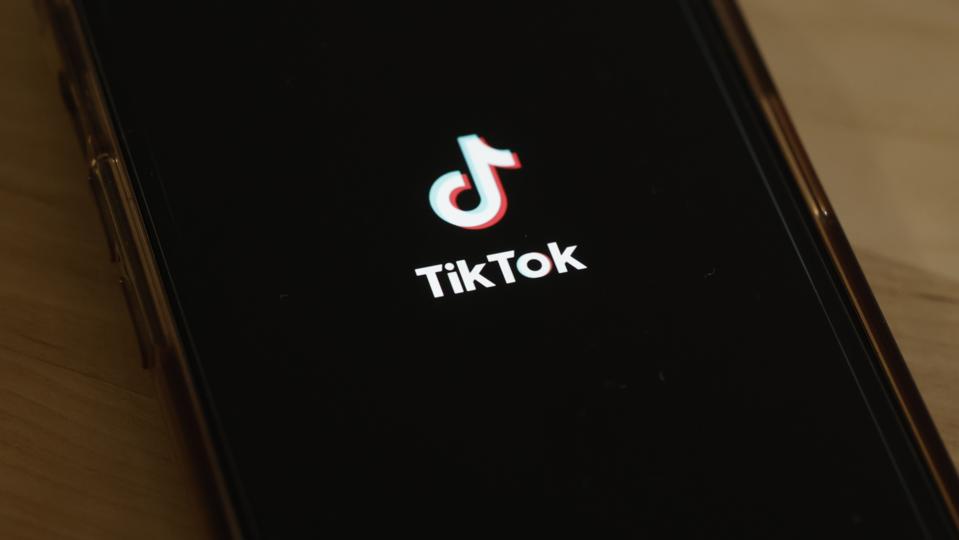Here’s how the controversial new TikTok ban—which passed the House—would work, its chances of passing the Senate and which American companies could potentially purchase the app and avoid a full TikTok shutdown in the US.

TikTok will not shut down if it finds an American buyer—and it came close the last time it faced a ban from the Trump administration.
Getty Images
Key Takeaways
- The bill will now move to the Senate, where it faces an uncertain future, likely facing more scrutiny from Democrats, with Majority Leader Chuck Schumer, D-N.Y., confirming in a statement the Senate will “review the legislation” but did not promise to hold a vote.
- However, both chairs of the Senate Intelligence Committee, Sen. Marco Rubio, R-Fla., and Sen. Mark Warner, D-Va., said in a statement they were “encouraged” by the bipartisan vote on Wednesday and “look forward to working together to get this bill passed through the Senate and signed into law.”
- TikTok bans have traditionally been supported by Republicans in the last few years—with Sen. Josh Hawley pushing one several times in 2023—but some Republicans have expressed concerns about the House’s bill, including Sen. John Cornyn, R-Texas, who told CNN, “I’m not sure that this is the answer.”
- If the bill is passed in the Senate, President Biden said he would likely sign it into law, telling reporters last week “if they pass it, I’ll sign it.”
- Meanwhile, TikTok CEO Shou Zi Chew is lobbying senators on Capitol Hill today, Reuters reported.
Is It Really A Ban?
Yes. The bill, called the Protecting Americans from Foreign Adversary Controlled Applications Act, will ban TikTok or any app owned or distributed by a company controlled by a “foreign adversary nation.” It also bans web hosting companies from storing files or data from TikTok. This provision would force TikTok to search for an American buyer or face a shutdown in the U.S., possibly similar to what happened after India banned the app in 2020.
Will Tiktok Shut Down Immediately If This Becomes Law?
No. TikTok will not stop working in the U.S. immediately if the bill is signed into law by President Biden. The bill would give ByteDance a 180-day grace period to sell TikTok, allowing it to continue operating in the U.S. temporarily until it finds a buyer. If not, it will become illegal for app stores, like those operated for Apple and Android devices, to host the app or distribute updates. It is also unclear if the TikTok ban would survive legal challenges. President Trump’s attempts to ban the app were continuously put on hold by federal judges, and Montana’s statewide ban on the app was blocked in November. The state has since appealed the ban to the Ninth Circuit Court of Appeals.
How Soon Could Tiktok Be Shut Down?
The 180-day sale period begins after the bill is enacted—after it passes the Senate and is signed into law by the president. So a ban could happen within six months of Biden’s signature.
Who Could Purchase Tiktok?
It remains to be seen if any companies would be able to quickly purchase the massively popular app, which ByteDance last valued at $223.5 billion. Microsoft previously tried to purchase TikTok in 2020, but the deal quickly collapsed after former President Trump’s executive orders banning the app were blocked by federal judges. Oracle, the cloud computing firm, and Walmart were part of a group that also tried to purchase TikTok in 2021, but the deal was also shelved after Biden took office, the Wall Street Journal reported.
Chief Critics
A total of 66 representatives voted against the bill on Wednesday, including members of the House Progressive Caucus. Rep. Alexandria Ocasio-Cortez, D-N.Y., voted no on the bill that she called “incredibly rushed” in a social media post on Wednesday. “There are serious antitrust and privacy questions here, and any national security concerns should be laid out to the public prior to a vote,” she said. Others joined a press conference with TikTok creators organized by Rep. Robert Garcia, D-Calif., on Tuesday afternoon.
Garcia criticized the argument that TikTok posed a national security threat, and said a classified briefing on TikTok failed to convince him that the threat was serious. “There was nothing in that briefing that changed my mind that this is an immediate national security threat, and that we’re going to remove this platform for 170 million Americans.” The most surprising critic of the bill, however, is former President Trump, who came out against the ban after it passed through committee last Friday.
During his last year in office, Trump tried multiple times to ban TikTok by executive action—all of which were blocked by federal judges before being rescinded by the Biden administration. In an interview with CNBC on Monday, Trump said “the thing I don’t like is that without TikTok, you can make Facebook bigger and I consider Facebook to be an enemy of the people.”